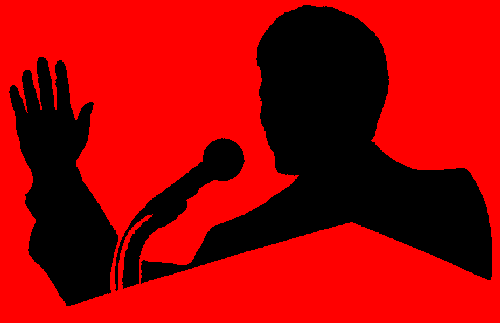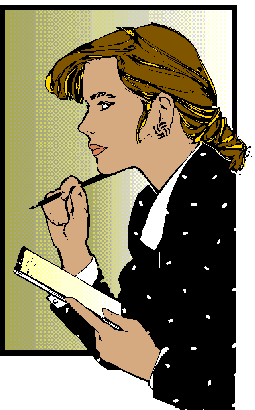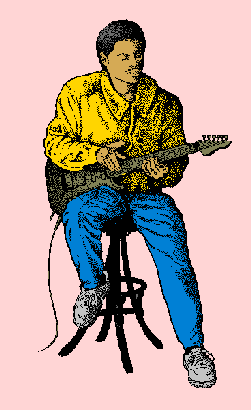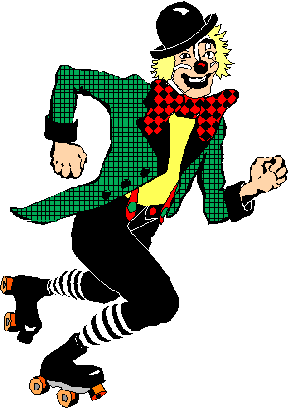Table of Contents
Abstract
This document will describe what training/responsibilities are needed for each of three positions, Tech Manager, Lighting Tech, and Sound Tech, related to the smooth operation of a Theater.
Why people are needed to maintain the High School Auditorium

In Yorktown Heights public school system there is a single auditorium in the High School building. This auditorium is used for introductions to new Freshman, teacher and guest presentation to both students and parents, musicals, dramas, and dance concerts in addition to other uses.
The auditorium is part of the High School building. It is used by all 5 of the public schools in the district for different purposes. Generally it is used to put on orchestra, band, drama, musical, and award ceremonies/concerts. This usage is based on the fact that this is the only public space designed to accommodate large groups of people in a comfortable performing/presentation space. But this use by 5 schools imposes a burden on the High School due to the lack of staff to manage the auditorium.
Part of the burden of running the auditorium, that part not handled by the janitorial staff, has been done by student volunteers known as the tech crew. The tech crew is a group of high school students who are willing to donate their time to operating the lights and sound equipment for the different users of the auditorium.
The training of these willing students has been under served due to the lack of a teacher/mentor who knows how technical theater works, and has the time to instruct them. Given this situation, I proposed to the First Nighters, that I would be willing to spend some time with these student volunteers to train them in how to setup and run the lights and sound. I further proposed that we organize a Tech Manager who would be responsible for contacting the lead person for each non-teaching use of the auditorium. This person would document the needs of the incoming group, and attempt to coordinate the users with members of the tech crew.
What does a Tech Manager do?

The Tech manager is the person who coordinates with the lead person from each non-teaching use of the auditorium to document their needs and coordinate the tech crew members who will handle the lights and sound needs.
This position should probably be handled by 2 or 3 people so as not to over burden a single person. Their main function will be making arrangements for the different users of the auditorium. Even though they will not be working directly with the hardware of the auditorium it would be useful for them to have a passing knowledge of how a production works and what tech materials are available.
What training does this tech manager need?
The job of the tech manager is coordination more than anything. They are not expected to do the lights, but to see that a lighting tech is available for the presentation, and knows what is needed. It would be useful for the manager to understand some of the issues with the lights to help head of any problems. They should be aided by a check list of what is needed for a presentation.
A typical scenario for the manager will be to contact the producer of the presentation at least 2 months in advance of the production. They will work with the presenter to determine what type of lighting is needed. Will outside people and/or resources be provided, by the presenter? Will the presenter be rehearsing in the auditorium prior to the presentation, and if so when? Does the presenter have specific need for spot lights, scene lights, or special instruction prior to the first rehearsal in the auditorium, if any. Finally, the manager will need to arrange for the light tech, who will be in-charge of the lights for that presentation to coordinate with the presenter.
A similar scenario would be to coordinate the sound tech and the needs of the presenter. Does the presenter need a simple podium microphone, multiple microphones, or wireless mikes. Is the presenter bringing any prerecorded music? Are there sound cues during the presentation? Will some of the microphones be used off stage? Will outside people and/or equipment be provided by the presenter? Will the presenter be rehearsing prior to the presentation in the auditorium? Finally, the manager will need to arrange which sound tech will be responsible to run the presentation and see that they coordinate with the presenter prior to arriving at the auditorium.
It will be expected of the manager to make sure the presenter has made arrangements with the high school personnel for use and preparation of the auditorium before the presentation.
Last, but certainly not least, the manager will need to check up on the state of the auditorium. This entails keeping the high school personnel aware of broken and/or missing items necessary for a smooth operation of the theater. Whether it is a missing ladder, or a ripped curtain, it will not get replaced or repaired unless the right people are aware of the problem. The manager is not expected to affect the repair, but is expected to notify the parties responsible and seeing that something gets done.
What does a Lighting Tech do?

The lighting technician is responsible for configuring and operating the stage lights in the auditorium.
When ever a presentation happens on the stage, there is a need for the stage lights. It can be as simple as that used by an awards ceremony, or as complex as that required for a drama production. Often the standard set of lights will be sufficient for the needs of the presenters. But when it comes time for a more demanding use of the lights, the lighting tech needs to be up to the task.
To be able to fulfill their role as a lighting tech, the student will need to be familiar with the types of lights available, the operation of the lighting system, and the mechanical/electrical configuration of the auditorium.
During the training of the light tech, I will attempt to provide a basic knowledge of the subject and it’s application to the auditorium.
What training does a Light Tech need?
In order for a Lighting Tech to perform their function I intend to give them some instruction in the following areas. Not all of these are strictly required, but should be interesting to the Lighting Tech.
How to run the light board will show the tech what the different knobs are on the lighting control board and how they work.
What are the dimmers will give an overview of how dimmers work, and how to check that they are working as expected.
How the stage is wired will focus on what circuits are connected from where to where. How to find the circuit breakers, and tell if they are on or not. How to understand the different lighting connectors and build adapters from one type to another.
What types of lights are available will describe the type of light instruments and their differences. Additionally, we will look at how to take them apart and fix them, should the need arrive.
How light affects the performers is a beginning course in lighting design. Before you can design lights, you need to understand lighting angles, and the quality of the light as seen from the audience.
Gel colors and their relationships will discuss how light color affects costume color and peoples perception of warm and cold.
Basic electric wiring will explain the the wire colors and sizing as specified in the national electrical codes.
What does a Sound Tech do?

A sound technician is responsible to setup the microphones, and other amplified sound sources. He/she is also responsible for running the equipment during the presentation/show.
Given the size of the auditorium, most speakers prefer to have their voice amplified so it can be heard by the audience. This can be as simple as hooking up a single microphone hardwired to the mixer, or as complicated as dealing with a half-dozen wireless mikes used by different actors entering and leaving the stage. Additionally the person must understand how to hook up, tape players, CD players, or laptop computers to the mix desk. Lastly, they will need to understand audio feed back and how to avoid it in the system.
For a typical presentation, they will need to arrive early to get the system setup, and checked out before the audience arrives. They will operate the mix desk during the presentation, and be responsible for seeing the equipment packed up and stored after it is over.
What training does a Sound Tech need?
A sound tech needs to understand how to use the equipment available in the auditorium. To fully understand how to be a sound engineer is well beyond the scope of this instruction, but I will attempt at creating a basic understanding of the field. Here is a list of what items I hope to cover
How to run the mix desk will show the tech what the different knobs are on the mix desk and how they work.
What amplification is available will give an overview of how the power amplifier works and how it is wired.
How the stage is wired will focus on what circuits are connected from where to where. Additionally we will focus on how to tell if something works and what to do if it doesn’t.
What types of microphones are available will describe the type and how they differ.
How to hold and use a microphone is a skill that the sound tech often needs to explain to the presenters. When they are using a wireless microphone the mounting of the mic affects the sound.
Acoustics and the auditorium will discuss how feed back is produced and what we can do to try to prevent it.
Basic electric wiring will explain the the wire colors, and organization as used in microphone cables. We will also discuss how to fix the wires, should the need arrive.
So How do we start?

Now it is time for some input about how to proceed.
Well before starting we need to find the people who are willing to fulfill the three roles defined above. One idea is to put up a poster with the URL of this web page. This might encourage people to read up on what we are proposing. Hopefully providing the information before the sign-up, we will encourage more people to apply to be on the crew.
Once we have a list of who wants to be on the crew, we can have a meeting to discuss who is interested in each of the three roles. That does not mean that we will only train each person in only one of the roles defined. It would be more productive if people learn multiple roles. It will make the crew more fun and more flexible.
What about the other jobs necessary for some productions, like stage hands, or a stage manager? These other roles are sometime needed and sometimes not. The stage manager, when needed should spend much more time learning a show than would be normal for the tech crew. The stage hands, generally, need more training in being quiet and quick back stage, than in how to run the lights or sound equipment.
Once the tech crew gets organized, we will try to find times after school when I can come in and train them. Hopefully, these will be more fun, than their other classes. I can assure you there will be less homework.
The check list for the Tech Manager will be something we will design and create during the year as we come to grip with the needs of the crew.
If you have any other suggestions, please send them to
Written by John F. Moore
Last Revised: Wed Oct 18 11:01:43 EDT 2017

This work is licensed under a Creative Commons Attribution-NonCommercial-ShareAlike 3.0 Unported License.
